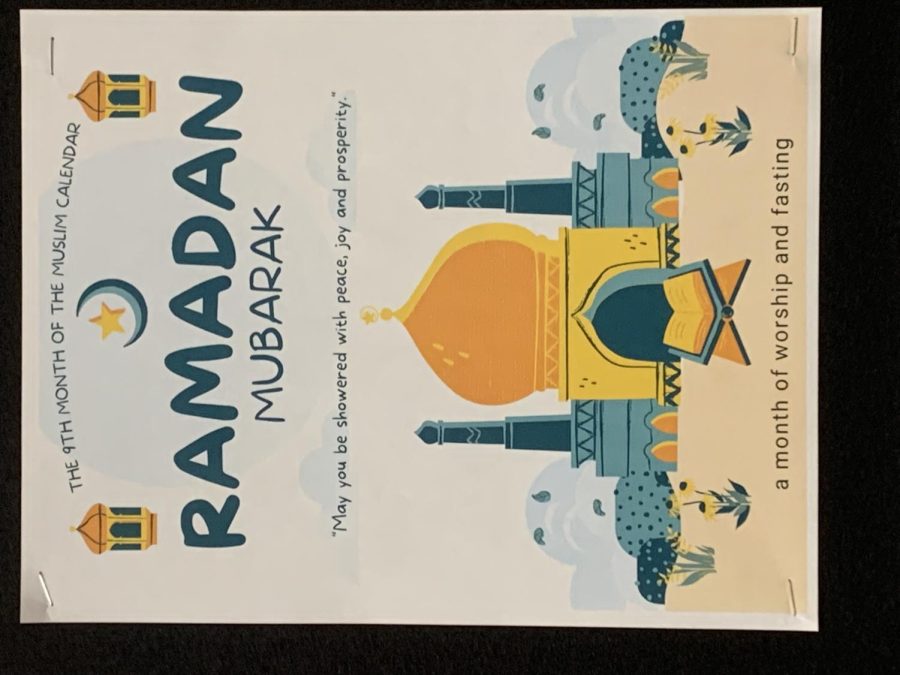Ramadhan: A Holy Month
April 27, 2023
Every year, for thirty days straight, Muslims from across the globe fast intermittently. Also known as Ramzan, Ramadan is a holy month dedicated to getting closer to God through fasting and prayer.
While on the surface it may seem that the objective of fasting is to abstain from food, it has greater implications than just that. The goal of fasting is to practice self-control and self-actualization by challenging individuals to resist temptations. As such, one becomes more resilient upon resisting their desires, such as indulging in delightful foods.
“When you fast, you are allowed to reflect on your actions and emotions and build character and behavioral patterns; Not only can we control our appetites when we fast, but how we think as well,” said sophomore Maysoon Khan.
Ramadan not only has mental and spiritual implications, but also physical. Fasting allows the body cells to rejuvenate as without food in one’s system, the body has additional time to address issues regarding one’s health. According to the National Library of Medicine, fasting can lower the risk of cancer as the tumor cells die off due to the lack of glucose. In order to make the most out of Ramadhan from a health perspective, certain measures must be taken.
“You are supposed to wake up before sunrise, and you are supposed to eat, and hydrate, [but] the majority of our high school students do not; so the biggest issue is dehydration, and students feel dizzy and nauseous,” said the school nurse, Amy Hisel.
Ramadan is as much about others as it is about oneself; deliberately persisting hunger prompts individuals to empathize with the less fortunate. According to the UN, 828 million people in the world face global food hunger and insecurity on a daily basis. Most individuals are ignorant of the unfathomable hunger that the impoverished face. Fasting, hence, allows individuals to put themselves in the position of the impoverished, creating a more empathetic and generous society by donating money, feeding others, and being charitable through one’s actions.
“A big part of not eating all day [is that] you can kind of figure out how people in less privileged areas feel on a daily basis; this may be a challenge for you, but for someone else, this is everyday living,” said sophomore Amin Jurabekzoda.
While Ramadan, for Muslims, is a yearly occurrence according to the Gregorian calendar, it is still an inclusive month for all humans. Non-muslims can help their Muslim peers by voluntary fasting, preparing Suhor — a pre-dawn meal and iftar — a meal eaten after sunset.
“I can help out my Muslim friends during Ramadan by encouraging them or giving them company. For example, I can go to the library with them so we can study together instead of them studying alone” said sophomore Jiho Lee.
Ramadan in the modern age is more appreciated and acknowledged. For example, schools give Muslim students time to pray and a space to sit during lunch. However, there is still room for non-Muslims to ask questions. There is no world-wide platform for non-Muslims to learn accurate information leading to knowledge being ambiguous.
“I would like to learn more details about Ramadan. I feel that I only know the basics such as fasting and praying, so I would like to gain more information about the history, facts, practices, etcetera” said Lee.
After a long, dedicated month of fasting, individuals celebrate their efforts on Eid-Ul-Fitr, a holiday that is determined by the occurrence of a full moon. It is often an occasion for family and friends to gather together and cherish the spirit of togetherness.


